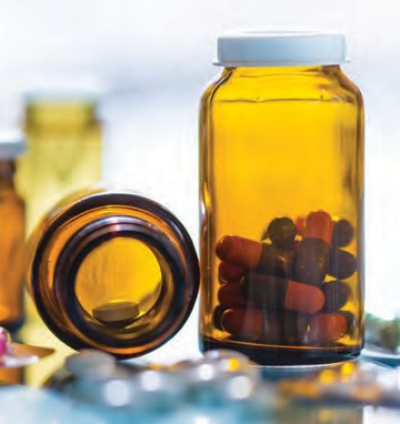Groups support strict enforcement action by FDA
The dietary supplement industry’s leading trade associations and the U.S. Anti-Doping Agency (USADA) late last year joined in support of the U.S. Food and Drug Administration’s (FDA) recent actions to protect consumers from body-building products containing Selective Androgen Receptor Modulators (SARMs) illegally marketed as dietary supplements. SARMs are dangerous and illegal, and they pose an immediate risk to consumers, jeopardize the careers of athletes, and have no place in any sports nutrition regimen.
Together, the American Herbal Products Association (AHPA), the Consumer Healthcare Products Association (CHPA), the Council for Responsible Nutrition (CRN), the Natural Products Association (NPA), the United Natural Products Alliance (UNPA), and USADA share concerns about these products and are supporting FDA’s efforts to crack down on companies unlawfully manufacturing products containing SARMs.
As recognized in a recent FDA advisory, products containing these ingredients are not dietary supplements; they are unapproved drugs that have not been reviewed by the FDA for safety and effectiveness.
Prohibited under the S1 Anabolic Agent category of the World Anti-Doping Agency (WADA) Prohibited List, SARMs have raised serious concerns for FDA, USADA, and the legitimate dietary supplement industry, as they have the potential to be misused for athletic performance enhancement due to their anabolic properties and their ability to stimulate androgen receptors in muscle and bone. SARMs are not approved for human use or consumption in the United States, but, despite being prohibited, SARMs have been found in a number of adulterated products falsely labeled as dietary supplements. Some products list the ingredient as “Ostarine”—one ingredient in the class of SARMs—but the ingredients may also go by an alternative name, or be entirely undisclosed on the label.
In addition to alerting consumers, the five supplement industry trade associations have taken action to remind member companies of the responsibility to ensure that SARMs are not used in their products. USADA issues educational resources on an ongoing basis to warn athletes and sports organizations of the negative consequences resulting from using products that contain SARMs, including sanctions and suspension. The industry groups and USADA are committed to amplifying consumer alerts/ warnings issued by FDA, and to disseminating tips consumers can use to make smart decisions when choosing sports nutrition products.
As recognized in a recent FDA advisory, products containing these ingredients are not dietary supplements; they are unapproved drugs that have not been reviewed by the FDA for safety and effectiveness.
FDA regulates the dietary supplement industry and this advisory puts companies on notice that those failing to comply with the law are subject to strict enforcement actions. Additionally, the advisory serves as a reminder to consumers—particularly amateur and elite athletes—to educate themselves on the dangers SARMs-tainted products pose. There are legitimate sports nutrition dietary supplements that are safe, beneficial, and not prohibited by WADA, and it is important for all consumers, including athletes, to engage in due diligence when deciding which products to use and which companies to purchase products from. Further, consumers should maintain an open dialogue with healthcare practitioners, and, as appropriate, trusted coaches and trainers, when incorporating products into their training programs or performance goals. Finally, consumers would be wise to manage expectations for their sports nutrition supplement products and should not purchase dietary supplements claiming to have drug-like effects.
Information for this article was provided by the Consumer Healthcare Products Association. The CHPA is the 136-year-old trade association representing the leading manufacturers and marketers of over-the-counter (OTC) medicines and dietary supplements. Every dollar spent by consumers on OTC medicines saves the U.S. healthcare system $6-$7, contributing a total of $102 billion in savings each year. CHPA is committed to empowering consumer self-care by preserving and expanding choice and availability of consumer healthcare products. Visit www.chpa.org and www.KnowYourOTCs.

